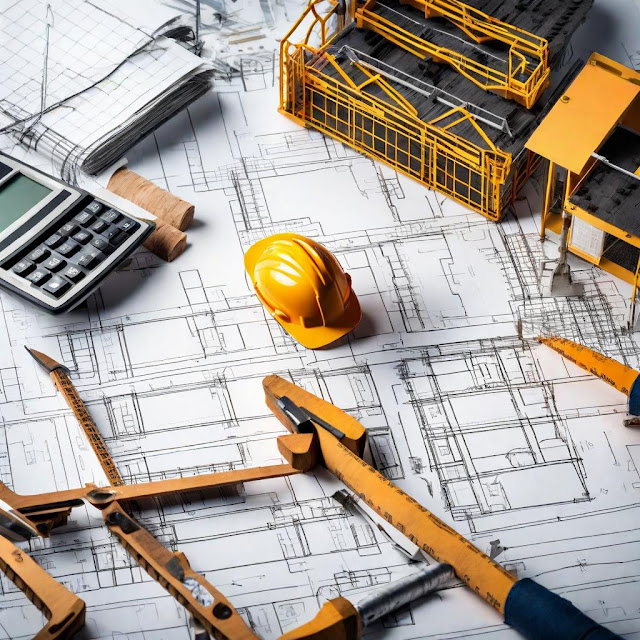Search This Blog
Most Popular
Categories
- Building Construction (87)
- Building Materials (88)
- Columns (2)
- Concrete Beam (3)
- Concrete Construction Techniques (6)
- Concrete Mix Design (15)
- Concrete Repair (14)
- Concrete Slab (11)
- Construction Equipment (17)
- Construction News (7)
- Design of Structures (20)
- Engineering Drawing (1)
- Estimation (3)
- Geotechnical engineering (26)
- Highway Engineering (11)
- Innovations (34)
- Material Testing (11)
- Matrix Analysis of Structures (2)
- Mechanical Engineering (3)
- Strength of Materials (2)
- Structural Analysis (13)
- Structural Design (24)
- Structures (17)
- Transportation Engineering (9)
Understanding Two-Stage Contracting in Construction
Team Prodyogi
March 15, 2024
In the world of big construction projects, two-stage contracts are becoming popular. They're a smart way to handle tricky projects. But what exactly are they? Let's find out.
Difference from Single-Stage Contracts
What is Two-Stage Contracting?
Two-stage contracting is a procurement method used in construction projects. Instead of doing everything all at once, like in traditional contracts, two-stage contracts break the project into two phases. The first phase focuses on planning and preparation, while the second phase deals with the main construction work.
Why Use Two-Stage Contracts?
- Speed: They help get projects moving quickly, even when the design isn't fully finished. This is important in fast-paced industries like construction.
- Transparency: Owners can see clearly what things cost and how decisions are made, which helps them manage the project better. It reduces misunderstandings and conflicts.
- Risk Control: By breaking the project into stages, risks are easier to handle. This makes it more attractive to bidders and keeps the project on track. It also allows for better risk management throughout the project lifecycle.
How Do Two-Stage Contracts Work?
Basic Structure
Projects have two phases. During the planning phase, designs are refined, costs are estimated, and key decisions are made. The main construction phase follows, where the actual building work takes place.
Tender Process
Contractors give prices based on how much things will cost during the first phase. Then, in the second phase, they negotiate a final price based on the refined plans and specifications.
Conversion Mechanism
This is how the project moves from planning to construction. It's a step-by-step process, ensuring that everything is ready before construction begins. It includes finalizing designs, confirming costs, and resolving any outstanding issues.
What Are the Benefits?
- Early Involvement: Contractors get involved early, which means they understand the project better and can plan better. This leads to fewer surprises and smoother execution.
- Risk Sharing: Contractors take on some of the risks, making it easier for the owner. This builds a stronger team and fosters collaboration.
- Fewer Surprises: Although initial prices might be higher, there are fewer surprises later on. This leads to smoother projects with fewer problems. It also reduces the likelihood of costly change orders and delays.
Difference from Single-Stage Contracts
In single-stage contracts, everything happens at once. The contractor is chosen, and work starts immediately. But in two-stage contracts, there's a planning phase first. This helps refine the design and figure out costs before starting construction. It's like making sure all your ingredients are ready before you start cooking. This extra step might take a bit more time upfront, but it often leads to a better outcome in the end.
Most Visited
Soil Sampling Methods| Undisturbed and Disturbed Samples
November 08, 2023
Boring Methods for Soil Exploration
November 02, 2023
Steel Column Connected to Concrete Masonry Wall
October 11, 2017
How to Choose Good Quality Aggregates for Construction?
August 10, 2021
What is Development Length (Ld) in Construction?
August 14, 2025
Structure of Timber |Macrostructure and Microstructure
March 22, 2024
What are Infiltration Wells?
April 15, 2024
Search This Blog
MUST READ
What is PERT? Objectives, Pros & Cons
September 10, 2017
Terzaghi's Equation: Soil Bearing Capacity for Foundations
March 02, 2022
Contact Form
Footer Menu Widget
Created By SoraTemplates | Distributed By Gooyaabi Templates


0 Comments
Commenting Spam Links Are Against Policies